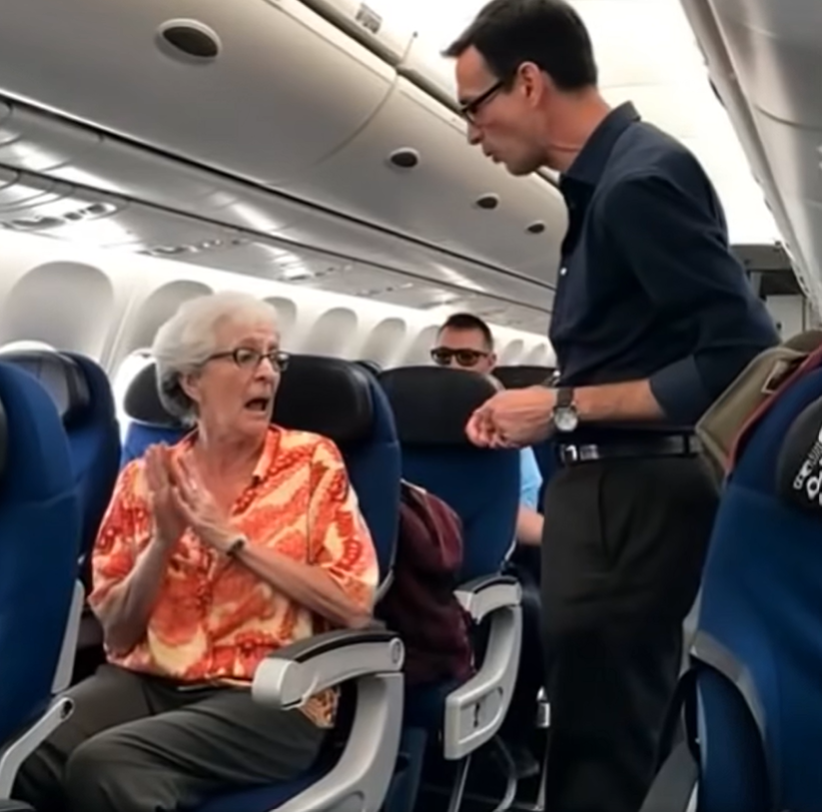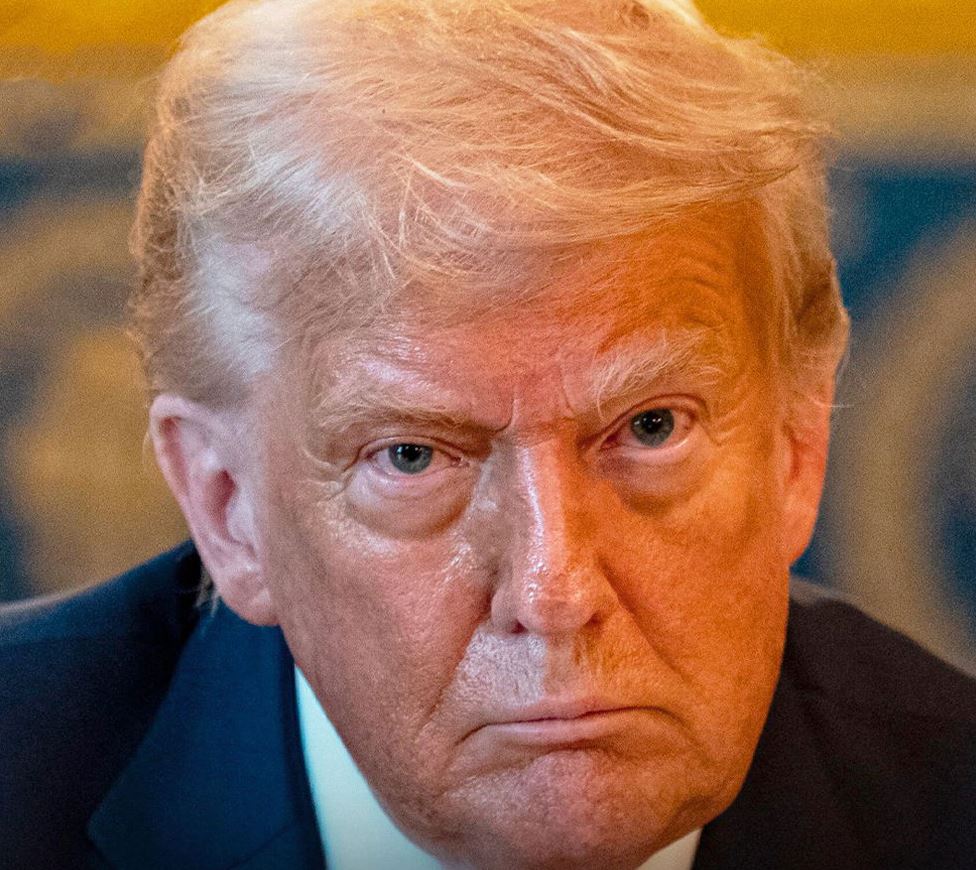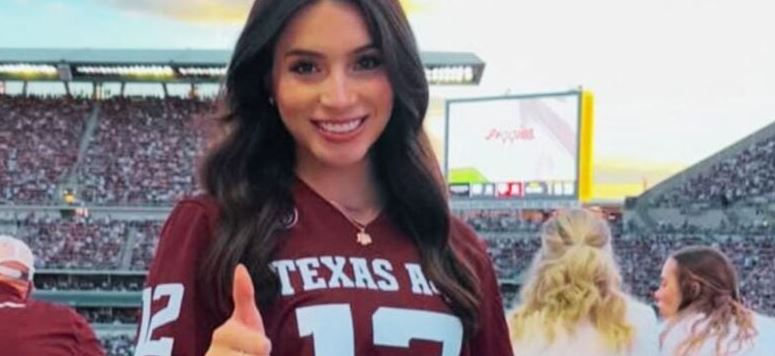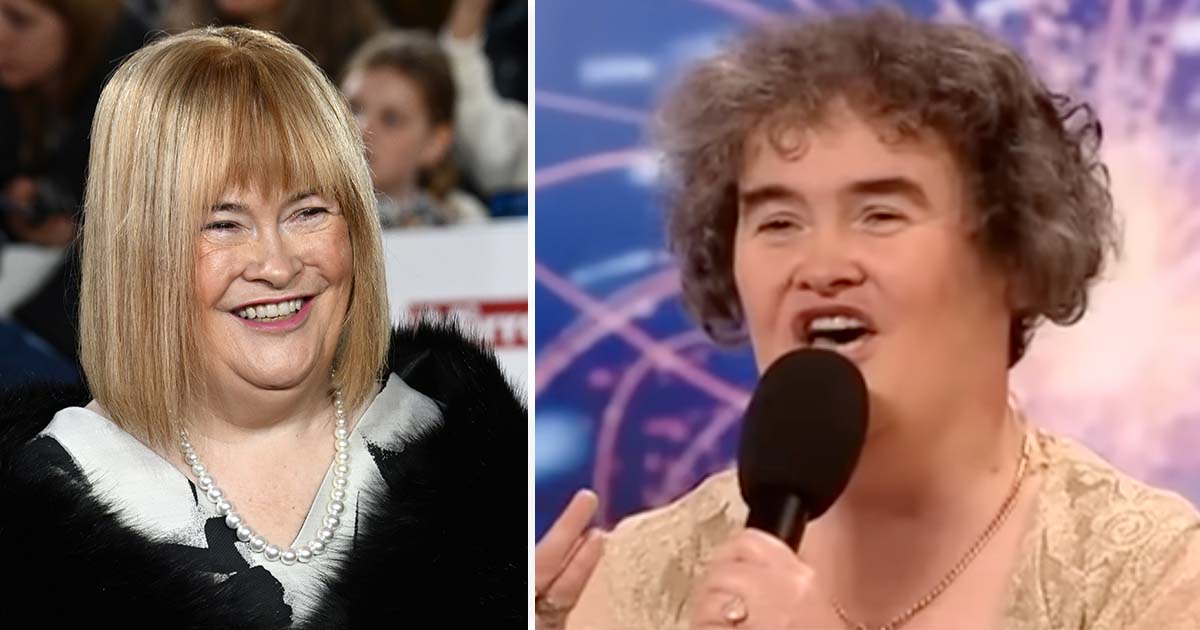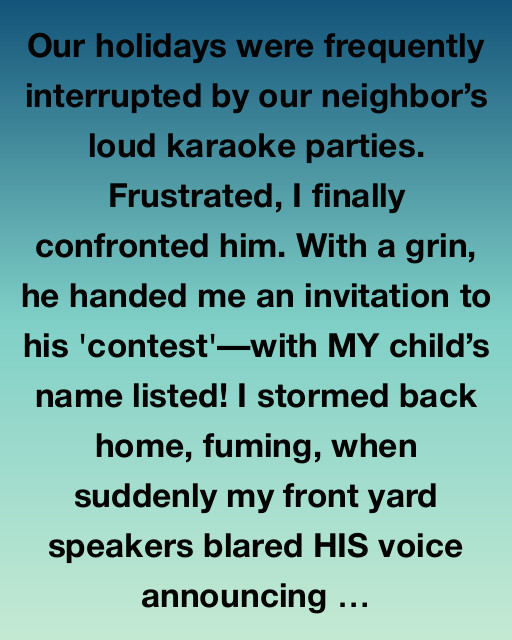It was a small, heart-shaped ruby encased in gold, but worn and scratched from age.
“This is Burmese ruby,” he said, eyebrows raised. “Old cut. Vintage clasp. Probably early 1900s. My father was a jeweler… this is no trinket.”
Stella’s hand trembled slightly as she reached for it. “It belonged to my mother,” she said quietly. “She got it from her grandmother. I never thought it was worth much. Just… sentimental.”
Franklin’s tone softened a bit for the first time. “It’s easily worth five, maybe ten thousand. Depending on the buyer, maybe more.”
The older woman looked at the locket as if seeing it for the first time. “Well, I suppose it’s had quite the journey too.”
There was a pause. The tension between them loosened just a little.
Franklin reclined in his seat and cleared his throat. “So… if you don’t mind me asking… why’d you spend all your savings on this seat?”
Stella looked out the window for a moment, then turned back, eyes glassy but warm. “I’m going to say goodbye.”
Franklin furrowed his brow.
“My daughter passed away last month. Sudden stroke. She lived in New York, and we… well, we hadn’t spoken in years. I wasn’t always the easiest mother. She… made her own choices, and I didn’t always approve.” Stella folded her hands in her lap. “But… I kept this locket to remind me that people can carry love through generations, even if it gets a little scratched up along the way.”
Franklin blinked. “You’re going for the funeral?”
“No,” Stella said, her voice cracking. “For her daughter. My granddaughter. Emma. She’s eight. And she’s all alone now.”
The man was quiet.
“She doesn’t know me,” Stella continued. “We only met once, briefly. But I’ve been writing her letters. Her mother never sent them, I think. I don’t blame her. But I kept writing. And when I heard… I knew I had to go. I want Emma to know someone still wants her.”
There was something about the sincerity in Stella’s voice that stirred something in Franklin. He leaned forward, elbows on knees. “What are you going to do when you get there?”
“I’m going to take her home. If she wants to come,” Stella replied. “I’ve already talked to the social worker. Everything’s lined up. I just… I needed to do it right. So I bought the seat because I didn’t want to be late. I didn’t want to miss my chance.”
Franklin stared at her. This woman, whom he had insulted moments ago, who looked so unassuming and worn, had more bravery in her little frame than he’d had in decades.
“I lost my son five years ago,” he muttered.
Stella turned to him gently. “I’m so sorry.”
“Cancer. He was 29. He didn’t tell anyone until it was too late. We… we weren’t speaking either,” Franklin said, rubbing his temple. “He told me I worked too much. He was right. I only saw the numbers. The image. The ‘status.’ And now, I’d give up everything to argue with him one more time. To just hear his voice again.”
The plane hit a little turbulence, and both of them instinctively reached for the armrests. Then they chuckled—two strangers realizing that grief and fear leveled everyone the same.
“You ever wonder if second chances are real?” Franklin asked after a while.
Stella looked down at the locket and smiled faintly. “I think second chances are all around us. Most folks just don’t notice them until it’s too late.”
The rest of the flight passed in a mix of silence and occasional conversation. Franklin even asked her a bit more about Emma, and Stella, full of stories she never got to tell, lit up when she talked about the little girl she barely knew but already deeply loved.
As the plane began its descent into JFK, the pilot announced a slight delay at the gate. Stella fiddled with the locket and looked visibly nervous.
“You need a ride from the airport?” Franklin asked suddenly.
“Oh, no, I arranged a shuttle,” Stella replied. “I saved on the hotel to afford the plane seat, so I’m staying in a place not far from the agency. I’ll be alright.”
Franklin hesitated, then pulled out a business card and handed it to her. “That’s my personal number. If anything goes wrong. Anything at all, you call me. I’ll help.”
She looked at the card, eyes narrowing. “Delaney & Finch?”
He smirked a little. “Yeah. That’s my firm. Corporate law.”
Stella gasped. “Wait… you’re that Franklin Delaney? My husband used to curse at the TV when your firm sued his favorite local coffee chain.”
“Guilty as charged,” he laughed sheepishly.
They exited the plane together, and Franklin insisted on walking Stella to her shuttle gate, much to the surprise of the flight attendant, who gave Stella a subtle wink.
—
Two weeks passed.
Franklin sat in his Manhattan office, trying to focus on a merger deal that would net his firm millions. But something kept tugging at him. A memory of a ruby locket and a woman who bought a seat not for comfort, but for a second chance.
His phone rang.
“Mr. Delaney? You have a visitor.”
“Send them up,” he said distractedly, not even asking who it was.
The elevator dinged.
A little girl with curly brown hair stepped into the office, holding a sketchpad and wearing a pink backpack. Behind her, Stella walked in, beaming.
“Emma wanted to meet the man who helped her Nana be brave,” Stella said.
Franklin stood, stunned, then knelt down. “Well, I’m honored to meet you, Emma.”
The girl grinned. “Nana said you were mean at first but turned nice.”
Franklin chuckled. “That’s exactly right.”
Emma handed him a drawing: three people holding hands under a blue sky.
“I drew us,” she said.
Franklin felt a lump in his throat. He looked at Stella. “How are things?”
“Hard. Beautiful. Worth it,” she said simply. “Emma starts school next week.”
They chatted for a while, and before they left, Stella turned to him. “You helped me when I felt invisible. I’ll never forget it.”
After they left, Franklin sat back at his desk, the drawing still in his hands. The merger no longer felt like the most important thing in his day.
He opened his laptop and started writing—not a legal brief, but an email to his sister, whom he hadn’t spoken to in six years over a petty argument. He didn’t even remember what it was about. But it didn’t matter anymore.
Because Stella was right.
Second chances are all around us. We just have to take them.
❤️ If this story moved you, share it with someone who needs to hear that it’s never too late to do the right thing. Drop a like, leave a comment, and let someone know they’re not alone.
